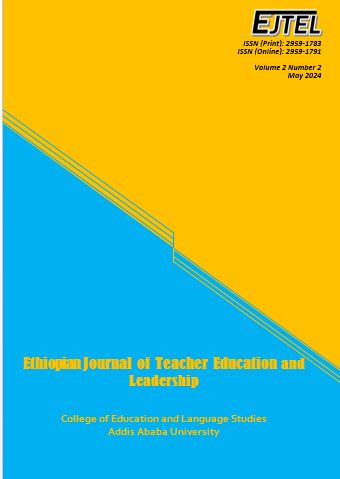Economics of Higher Education Financing: Exploring the Interplay between System and Capacity in Ethiopian Public Universities
DOI:
https://doi.org/10.63990/ejtel.v2i2.12447Abstract
This Article presents a critical analysis of the evolution of teacher education in Ethiopia, tracing its roots from religious-based education to modern pedagogical frameworks. Historically, teacher education in Ethiopia began within the religious institutions of the Ethiopian Orthodox Tewahido Church, where instruction was closely tied to spiritual teachings. The transition to modern education was marked by Emperor Menelik II's initiatives and further expanded under Emperor Haile Selassie, who established the first formal teacher training institutions. Over the decades, the system has undergone significant changes. The introduction of secular education, the establishment of formal training programs, and the socialist restructuring during the Derg regime - infused with Marxist-Leninist ideologies - were pivotal moments in Ethiopia's educational evolution. In the early 2000s, the Teacher Education System Overhaul (TESO) represented a ground-breaking shift towards modern approaches, focusing on competency-based training and student-centered learning. Despite these advancements, challenges continue to exist. Resource limitations, disparities in quality across regions, and the struggle to retain skilled teachers - especially in rural areas - highlight persistent issues. The Article also examines the socio-political and economic influences shaping teacher education, including the contributions of international organizations like UNESCO and USAID. By weaving together historical and contemporary perspectives, this Article sheds light on Ethiopia’s progress and persistent challenges in teacher education. The Article recommends policy improvements. It also emphasizes the importance of continuous professional development to ensure the system's long-term success and effectiveness.

